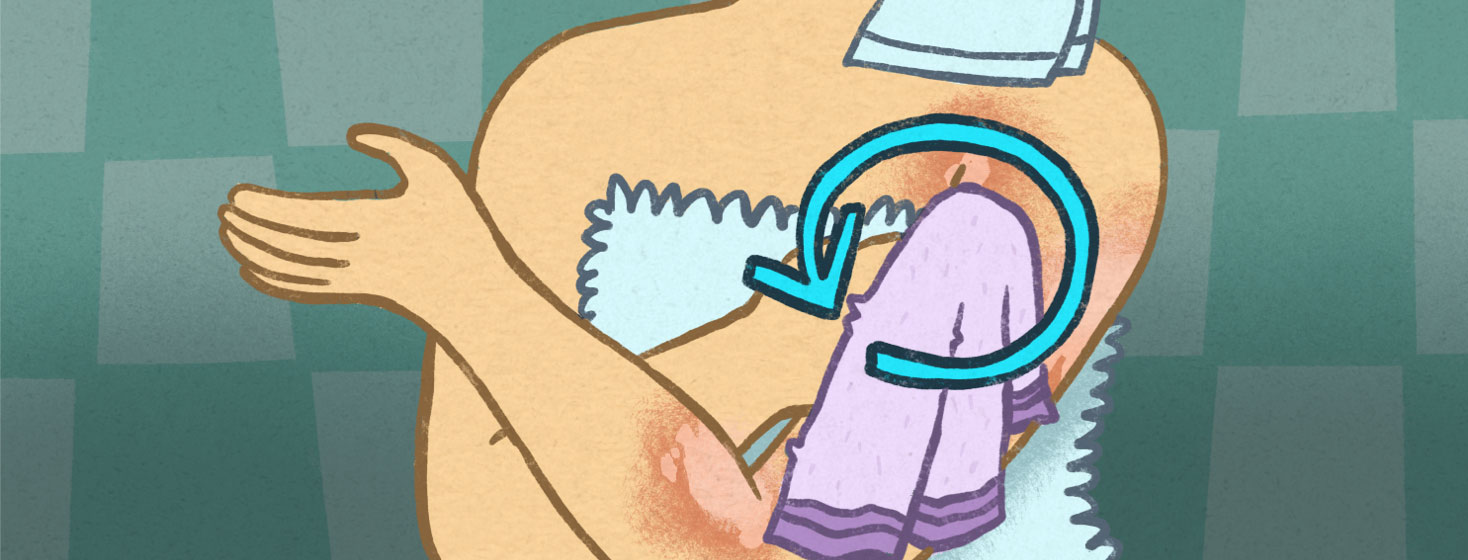Tips For Removing Psoriasis Plaques & Scales
Plaque psoriasis is an autoimmune condition that produces skin cell growth at a rapid rate. The result? Raised skin plaques throughout areas of the body that include but are not limited to the elbows, arms, wrists, knees, and ankles. Let's not forget the scalp, either.
These raised plaques also referred to as scales, can cause an insatiable itch and intensely painful skin.
Can the build-up of psoriasis plaques be removed?
Yes, but it must be done so in a delicate way to not trigger a new psoriasis spot. Removal also depends on the comfort level of the individual. It may not be something people feel safe doing - and that is okay.
There is a segment of those who live with psoriasis who reap the benefits of psoriasis plaque removal and find a semblance of relief. Here at PlaquePsoriasis.com, we're lucky to have a supportive community full of helpful insight and unwavering support.
We've compiled a few helpful tips, and we believe our community would agree; please talk with your doctor before starting or ending any treatment. It may also be helpful to discuss plaque removal methods with them! They may not be listed here!
Find a moisturizer that will loosen your chosen plaques
Moisturized skin simply feels better and, in this case of plaque removal, primed and ready. This is an important first step. Once you have your key plaques identified, cover them with a moisturizer or emollient that is thicker in nature.
May community members state they have found an over-the-counter moisturizer that works for them, while others find that a prescription works better. Further confirming that everyone's psoriasis journey is different.
Featured Forum
View all responsesSome also have found it helpful to wrap the moisturized affected area with either plastic wrap or a shower cap. This helps the skin stay moisturized before the official removal process.
Additional methods to soften and curate your psoriasis plaques
Community members have shared that certain exfoliants can help further soften the skin. This approach is meant to weaken the tight bonds between skin cells. Of course, when those bonds are weakened, the outer layer of the skin cells will shed. A key component in removing psoriasis plaques.
Salicylic acid is another option to prepare the skin for plaque removal. This approach softens keratin directly, a primary protein in the skin. Some salicylic acids can be too harsh on the skin, and therefore, other options can be glycolic and lactic acids, which may be gentler.
Coal tar is yet another option to weaken those skin cells. It's quite a smelly approach but effective in helping shed the outer layers of the skin. Coal tar can be found in shampoos, soaps, lotions or creams.
Giving your psoriasis plaques a good soak
Not everyone finds soaking in the bath to be relaxing, but some find it to be a helpful method in softening their psoriasis plaques.
Lukewarm water is best for maintaining your psoriasis skin - this approach is the same when speaking to psoriasis plaque removal. A cold bath sounds simply awful, while a bath that may be too hot can dry out your skin, trigger new areas of psoriasis and cause more pain.
Add oatmeal to your lukewarm bath for a natural moisturizer and a lovely smell. A few drops of coconut oil couldn't hurt, either.
Tips and techniques for removing psoriasis plaques
Our key theme here should be gentle. You and your skin deserve it. So what to use? You have a variety of options. Use your own clean hands and fingers, try a helpful tool like tweezers or a pumice stone, or attempt rubbing a lukewarm washcloth along the plaques has always been proven to help.
It's important to also note that you shouldn't force the removal. You don't want to damage the skin under the scale or cause bleeding. Loofahs, scalp brushes, and combs can also be helpful - especially when you're treating the scalp.
As for technique, try not to scrape the scales but try a gentle circular motion to avoid damaging the skin. Hopefully, you have had some plaque removal success, and post-removal can moisturize your reinvigorated skin.
Psoriasis plaque removal isn't a fine science, and it's important to be patient with yourself. Be realistic about your approaches and give yourself grace when a plaque is particularly stubborn.
Our community here at PlaquePsoriasis.com understands and is ready with a listening ear, supportive advice, and unique stories.

Join the conversation